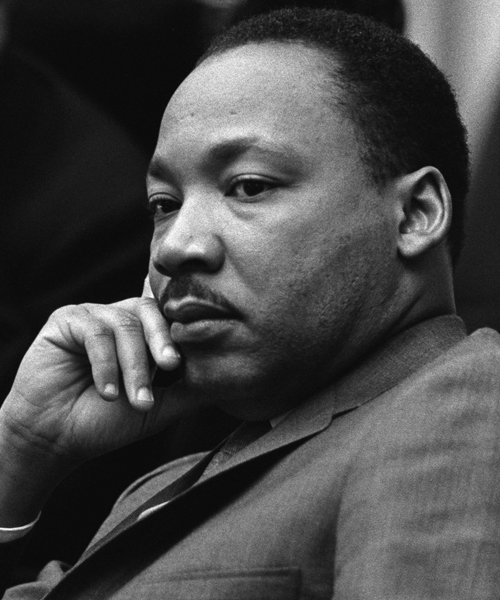It may seem that not much more can be said about a towering figure such as Martin Luther King Jr., but the man contained multitudes. To mark Martin Luther King Jr. Day on Jan. 18, here are a few lesser-known facts about the civil rights giant:
1. King came from a family of preachers. His father, grandfather, great-grandfather, brother and uncle were all preachers. “I didn’t have much choice,” King wrote in his autobiography. And yet as a teen he was a doubting Thomas who once scandalized a Sunday school class with his views. It wasn’t until his junior year at Morehouse College that he embraced the family business.
2. Music and musicians accompanied him throughout his life. King’s mother was a pianist and organist who gave him piano lessons as a child. His wife was a musician and singer who was studying at the New England Conservatory when they met. And King sang in the church choir — unsurprising given his dynamic, cadenced oratory.
3. He was a Trekkie. Nichelle Nichols, the African American actress who played Lt. Uhura on the original “Star Trek,” decided to move on to Broadway at the end of the first season in 1967. Creator Gene Roddenberry asked her to take a weekend to reconsider. During that weekend, Nichols happened to be at a fundraiser where King was present, and he asked to meet her because he was a huge fan of the show. She agreed, and when she explained to him that she was leaving the series, he passionately argued for the role’s importance and why she should stay. The rest is history.
4. King revered Mohandas Gandhi. It was Gandhi’s example of nonviolence that informed King’s civil rights work. King referred to himself as a “pilgrim” in his 1959 trip to India, and one of his first stops was Gandhi’s cremation site. “It is one of the strange ironies of the modern world that the greatest Christian of the 20th century was not a member of the Christian church,” he once said in a sermon.
5. He believed in economic justice. Decades before Andrew Yang, King was a proponent of a universal basic income. At the time of his death in 1968, he was poised to launch the Poor People’s Campaign and he had thrown his support behind a Memphis sanitation workers’ strike. “It’s a crime for people to live in this rich nation and receive starvation wages,” he said during one of his visits. A few weeks later, during another visit, he was assassinated.
